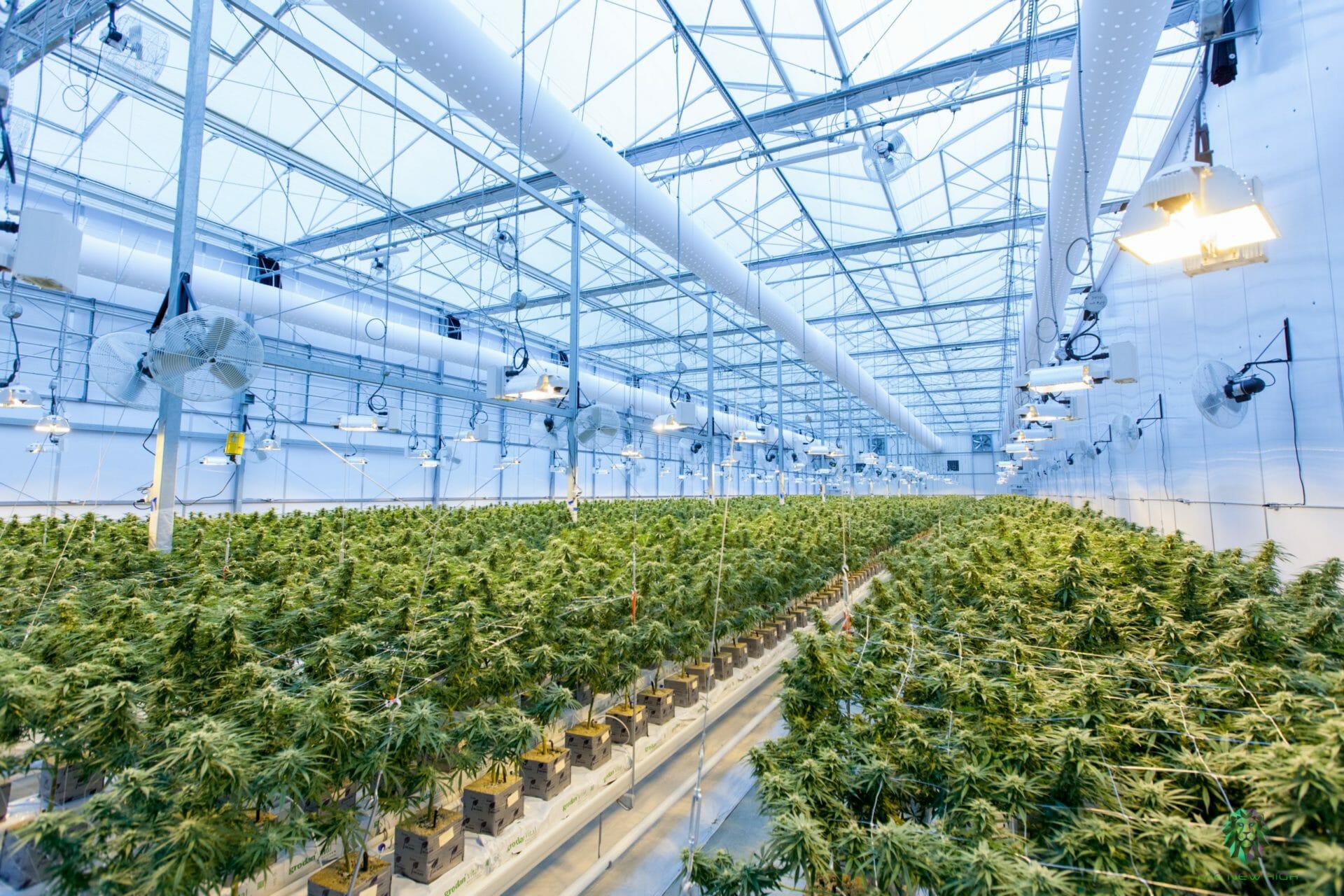Best States to Open Dispensary in 2021
There are a lot of factors to consider if you are looking to start a business in the burgeoning cannabis industry and the process requires patience, planning, and attention to detail. Each state with legalized recreational cannabis has a different set of laws, regulations, taxes, and license application procedures for prospective cannabis businesses, and they can range from the easy-to-understand to the extraordinarily complex. Additionally, there’s a license fee that also needs to be handled. Because each state approaches its cannabis business requirements differently it can be difficult to draw direct comparisons between them when looking at starting your business or expanding it to a new state. However, some states do have clear advantages over others depending on the type of business you want to start, and for entrepreneurs with the commitment necessary to overcome the bureaucratic red tape between them and their new cannabis business will be rewarded with a market share in one of the fastest growing and lucrative industries in the United States today.
As the concern for COVID-19 is decreasing, opening a marijuana dispensary, other cannabis business or even a cannabis-related company is more appealing. The first step toward determining the best state in which to start or expand your cannabis business is deciding what type of business you want to start or how you would like to widen the scope of your current operation. The plant-touching side of the cannabis industry is comprised of several types of businesses, including breeders, cultivators, manufacturers, and dispensaries.
Breeders – Breeders work on the genetic side of cannabis production. They are responsible for developing the quality of seeds and specific strains of cannabis that the cultivators will then grow.
Cultivators – Cultivators are the farmers that physically grow the cannabis. From small farms to large-scale operations, cultivators are responsible for growing and harvesting the high-quality cannabis that can then be sold wholesale to extractors and dispensaries.
Extractors – Extractors process raw cannabis into a variety of finished products such as concentrates, oils, edibles, and topical applications. Extractors use a range of different methods to isolate terpenes and cannabinoids from the raw cannabis plant matter in order to create products ready to sell.
Dispensaries – Dispensaries are the retail stores of the cannabis industry and are in direct contact with the consumer. Dispensaries can sell cannabis in different ways, whether in brick and mortar stores or through online cannabis sales, and usually employ budtenders with knowledge of the products to help customers find what they are looking for.
Whether specialized or vertically integrated, the plant-touching portion of the cannabis industry is heavily regulated and subject to different statutes and rules depending on the state in which it operates. Laws are constantly changing, and the application requirements, fees, and processes can vary greatly from one state to another. For these reasons it is difficult to quantify exactly what state might be best for your cannabis business, but here are a few advantages and disadvantages that exist for a few established states with a several years of legalized recreational cannabis under their belts along with medical marijuana, as well as a look at emerging states that have only recently entered the recreational cannabis market.
Established Cannabis Markets

There are many established markets in the industry where both adult-use and medical marijuana are legal. When considering these states for your cannabis business, consider the competition, license fee, potential for long-term success, and the rise in MSOs. Here is a state-by-state look at established markets where you can start your marijuana business.
- California
Advantages
California has a long history in the cannabis industry and was the first to legalize medicinal use in 1996. Recreational cannabis became legal in 2016, and since then California has led all other states in cannabis revenue, generating $4.4 billion in 2020 alone, up 57% from 2019. The benefits of California are numerous. Although the state has become flooded with cannabis businesses since 2016, the state’s massive population, a high percentage of which are active consumers of cannabis products, leaves plenty of room for growth and new startups to succeed there. The climate is good for cultivation, the talent pool for skilled employees is deep, and the tiered system for applications and licensing allows for a variety of different sized and styled operations to qualify.
Disadvantages
There are some drawbacks to opening a cannabis business in California. Real estate can be expensive in the state, whether renting or buying, and the cost of living is high, which will also raise the cost of payroll. The market is crowded and the state is a known cannabis destination, even before the legal market began, so it is critical to have an airtight business model and an innovative product in order to make a splash in California.
- Colorado
Advantages
Colorado was the first state to legalize recreational cannabis, and since then the state’s cannabis market has exploded. The state recorded over $2 billion in cannabis revenue in 2020, and is projected to continue its upward trend. The application fees are comparatively reasonable and the necessary licenses not overly difficult to obtain, making Colorado an attractive place to start a cannabis business.
Disadvantages
Much like California, Colorado has a large population of cannabis consumers, and since legalization of recreational cannabis has become a destination for marijuana tourists to visit. And while this is great for the industry, it has also led to a crowded market that is difficult to crack. Your marijuana business plan should be crafted carefully to keep up with the saturated market.
- Washington
Advantages
Another early adopter of legalized recreational cannabis, Washington has seen exceptional success in the industry. Generating $1.8 billion in revenue in 2020, up 21% from 2019, Washington’s cannabis industry has shown that it will continue to grow despite a crowded market. The demand remains high in the state, and with a good climate for cultivation, a strong market for processing and extraction, and numerous successful dispensaries catering to locals and marijuana tourists alike, the state is well established as a good place to start a cannabis business.
Disadvantages
The main drawback to Washington is its high tax rate (37%), the highest amongst states with legalized recreational cannabis. Commercial real estate can also be expensive, particularly in the Seattle area, though prices are more reasonable the further you get from the major metropolitan areas.
States where Cannabis Markets are Emerging

- Arizona
Having just passed legalized recreational cannabis use in November of 2020, Arizona executed a quick turnaround in its distribution of recreational licenses, initially offered to already established medical marijuana dispensaries, and is poised to become a lucrative cannabis market in the years to come as more cannabis businesses open up. Arizona’s substantial population of 7 million people is already lining up to buy recreational cannabis, and despite only a limited number of licenses being offered at first, new businesses looking to start the application process can expect a welcoming market of consumers awaiting them when they are able to acquire one. Cultivators and processors should also do well in Arizona as the state has begun issuing recreational cultivation permits in April of 2021. Overall, the state is projected to generate $406 million in sales in its first year.
- New Jersey
Another newcomer on the recreational cannabis scene is New Jersey, which also legalized adult use marijuana in November 2020. This state has a lot of opportunities for businesses wanting to enter the market, as a dense population in the Northeast and reasonably low taxes favor new business ventures in the state. Some analysts predict New Jersey could generate $1 billion in annual cannabis sales by 2024 (depending on how quickly New York implements its own legalization), and with demand expected to initially outpace supply the state is a great place to start a business in cultivation or extraction. New Jersey will also be offering “microbusiness” licenses to ensure that small businesses, not just multi state operators and dispensary chains, will be able to compete in the recreational cannabis market. Now with both adult-use and medical marijuana legalized, New Jersey will be a strong player in the market.
- Massachusetts
Massachusetts legalized recreational cannabis in 2016, and opened its first recreational dispensaries in 2018. The state’s biggest attraction for new cannabis business owners is its easy application process, with many applications approved in less than 90 days. Because of the rapid growth of cannabis businesses in the state, Massachusetts brought in $700 million in recreational cannabis revenue in 2020 and is expected to top $1 billion in 2021. Despite having been around in the recreational cannabis game longer than Arizona and New Jersey, its reasonable tax percentage and its business-friendly attitude toward licensing makes Massachusetts a very appealing state in which to start a new cannabis business, whether it be cultivation, extraction, dispensary, or a combination of all three.
- New York
New York is one of the newest states on the scene when it comes to the recreational cannabis market, and they have passed one of the most progressive frameworks for legalization in the country. Already a densely populated state chalked full of cannabis consumers, New York has been innovative in its approach to legalization by creating a structure that protects and rewards small community businesses and allows them to compete with giant multi-state operators, generates “social equity” by ensuring half of all licenses go to marginalized people whose communities were most damaged by the war on drugs, and awards consumption licenses which protect consumers and advocates from private prohibition imposed by landlords and public housing. With such an innovative legalization framework redefining some of the stigmas surrounding cannabis and its industry, New York is poised to become one of the healthiest cannabis markets in the country, and will have plenty of demand to support a variety of new cannabis businesses in the state.
As more and more states join the recreational cannabis market, new opportunities will arise for marijuana entrepreneurs to succeed in the industry. Despite stringent oversight and a litany of bureaucratic red tape involved in applying and qualifying for licenses and adhering to regulations, in addition to raising capital for your dispensary or other cannabis organization, cannabis remains the fastest growing industry in the United States and a fantastic risk-reward proposition for forward-thinking people to start a successful business.





